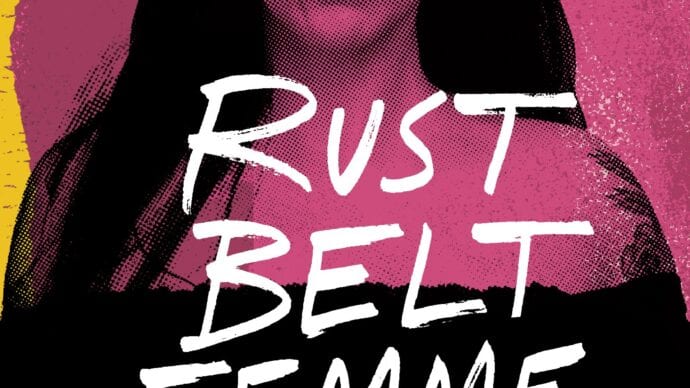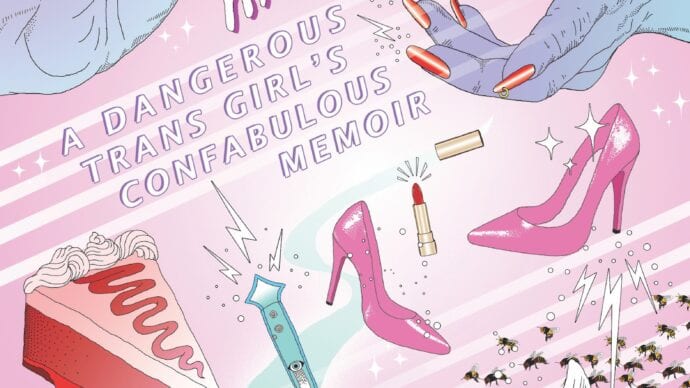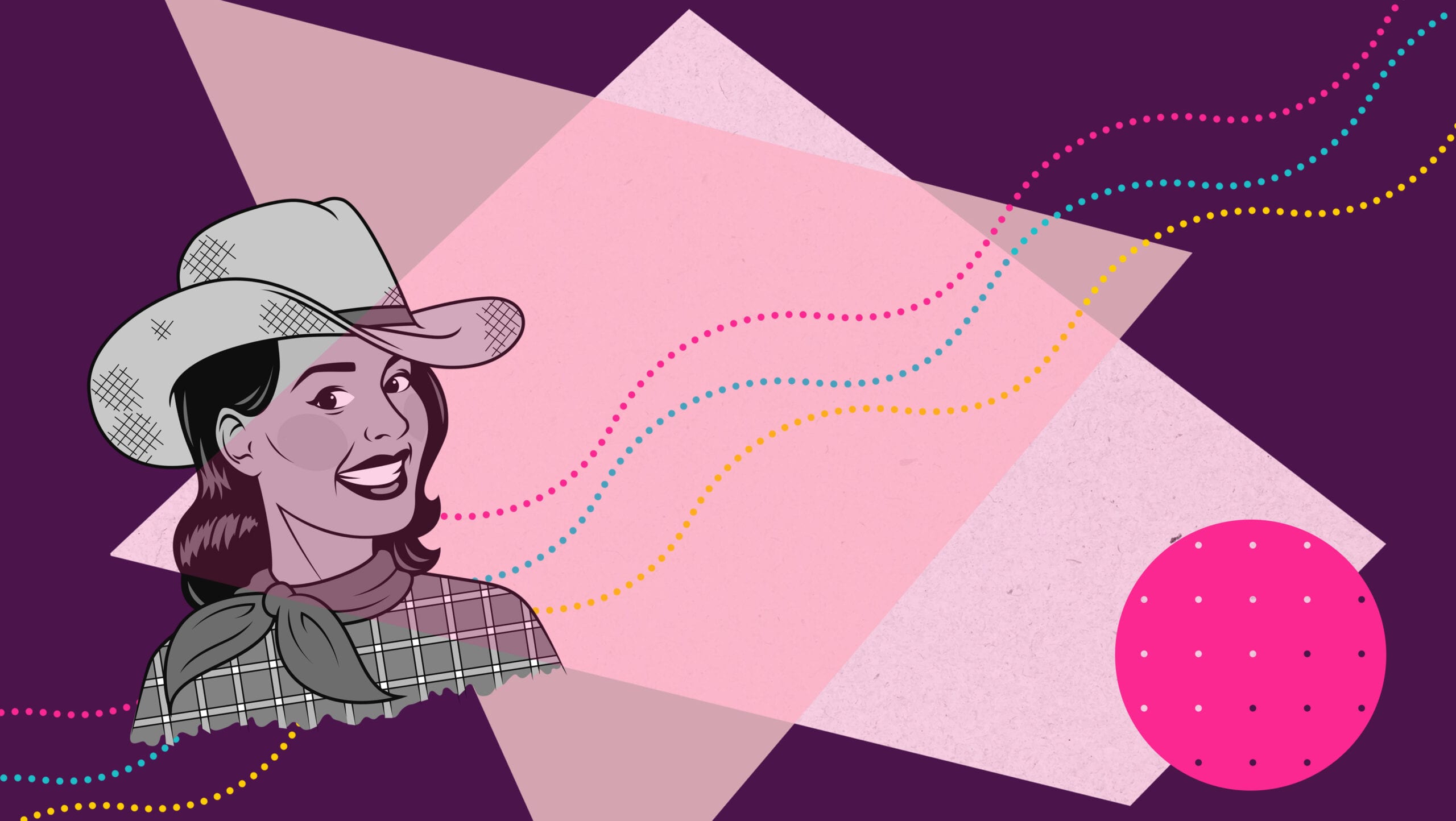One of my first idols was Elly May Clampett, the fictional teenage daughter in The Beverly Hillbillies ensemble. The show’s 1993 screen adaptation was the first movie I ever saw in theatres. It was my fourth birthday, and my dad and I drove 30 minutes into town to catch it. The memories I have of watching Elly May swing her legs up into a tree and of my own first struggle to shimmy up the trunk of the tamarack in my backyard are so tied together that it seems as if I marched right outside to try immediately after watching that scene. Sporting pigtails and freshly scraped knees, I balanced triumphantly in that tree in the middle of our acre-and-a-quarter property in small-town Puslinch, Ontario. I felt just like Elly May: beautiful, agile and deeply country. The stitching together of my favourite pastimes out in the country (climbing trees) and the Hollywood hotness of Elly May (she was played by Baywatch babe Erika Eleniak) marked my first encounter with country glamour, and the first time I understood what I was—or at least what I wanted to be: femme. But my journey through realizing my queer sexuality, my first queer relationships and my ever-evolving queer politics has led me far away from the country. Somewhere along the way, I learned to believe that the city was the only safe haven for queers. In North America, we often stereotype rural communities—along with working-class and immigrant communities—as devoid of queerness, and even as hostile to queer folks. There are many accounts of this being true, unfortunately. But simplified assumptions that queer life isn’t possible in working-class, rural and immigrant communities have been challenged by many. Historian Valerie J. Korinek, for one, collected decades-worth of stories about queer communities in western Canada for her book Prairie Fairies. Work like Korniek’s challenges what scholar Jack Halberstam called “metronormativity”—the exultation of urban spaces as the centre of queer life and culture, and the simultaneous assumption that queers “left behind” in rural spaces are closeted and isolated. These challenges continue outside of the academy, through Instagram accounts like @queerapalachia (which will change everything you think you know about horse girls and hillbillies) and the genre of femme memoir. Femme is a queer identity with roots in working-class, lesbian bar culture as well as ball culture, dominated by Black and Latinx queer and trans folks. Femme identification formed here because white, cis, straight women with class privilege are the only ones we’ve historically called “feminine.” There are myriad ways to understand femmeness, but a current that runs underneath all of them is the notion of queering white, middle class, straight femininity. While femmes come from all walks of life, these histories tell us that they’re often working class, trans and racialized, and their memoirs can give us a peek into life within these communities.

Credit: Courtesy Belt Publishing
“It’s not wrong that poor, white America has its share of bigots, but it’s also not that simple,” American author Raechel Anne Jolie writes in her newly released memoir Rust Belt Femme. That’s one of the central themes that runs through Jolie’s memoir about growing up poor in Ohio: Class shapes our gender and sexuality, particularly for femmes. In Rust Belt Femme, Jolie describes how she experimented with clothes and makeup as a child, and how the aesthetics of the working-class women around her found their way, permanently, into her femme gender presentation. “I go to the mirror and put several more coats of eyeliner below my eyes, and fasten a black choker at my neck. I don’t have a sense of it in any conscious way, but this is when my gender finds its footing,” she writes. “It’s a complicated blend of the trashy women of Tinkers Creek and the Old Hollywood chic that my grandmother leaned into effortlessly, along with the languid and aggressive femininity of alternative ’90s women.”
Credit: Courtesy MIT Press
But if class shapes femme gender, it also shapes queer femme desire. It’s a concept found in other personal journalism, too. The prolific Michelle Tea has written five memoirs, and her first, The Passionate Mistakes and Intricate Corruption of One Girl in America, bridges stories of growing up working class in Chelsea, Massachussetts, and coming out into Boston’s queer community. In telling about an early girlfriend, she writes, “Kelly had hair past her butt and teeth that were rotting in her head, it really threw you when she smiled. They were crooked and brown, hanging in her mouth like a giggle. I have a love for women with fucked-up teeth. Working-class girls who couldn’t afford dentists.” Later in the story, class dovetails with feminist politics as Tea describes the slow horror of realizing her date was a corporate lesbian, and her further fascination with the beauty of working-class women with “that awful just-outside-Boston accent I love.” In these tellings, the authors construct worlds where working-class aesthetics are not reviled but are enviable, desirable and even glamorous—where words like “trashy” are embraced lovingly and longingly. Femme memoirs also spin narratives of queer desire and community that include working-class, rural folks as well as racialized, immigrant communities located in big cities. This is significant, considering that these are not the images we’re taught to conjure when we think of queerness. Leah Lakshmi Piepzna-Samarasinha’s memoir, Dirty River, takes us from her life in small-town, working-class Massachusetts to activist circles in Toronto during the 1990s, where she encountered queer and glamorous South Asians at Desh Pardesh—the bygone radical South Asian arts and politics festival in Toronto. For Piepzna-Samarasinha, coming from a working-class family and being mixed race meant not fitting in, exactly, but still finding belonging in the crowd of brown, queer folks. Piepzna-Samarasinha’s stories help to rewrite the stereotypes of what it looks like to be queer and brown, and challenge commonly-held assumptions that immigrant communities are devoid or unaccepting of queerness.
Credit: Courtesy Arsenal Pulp Press
The myth that rural, working-class and immigrant communities are always hostile to queers is a politically convenient one. It gives liberal queer voters someone to blame when elections lean right, and it gives politicians populations to skirmish over to bolster their campaigns. But the complexity of these communities gets overlooked along the way, perhaps especially the queer and political solidarity that does, at least sometimes, grow out in the country. Musician Beth Ditto wrote her memoir, Coal to Diamonds, about growing up queer in Judsonia, Arkansas, and going on to become a feminist, fronting the band Gossip. Her mother, Velmyra, played an integral role in shaping her political consciousness: She didn’t allow guns or the casual use of anti-Black racial slurs in a town where both were seen as harmless and ordinary. Velmyra was also who the neighbours brought their daughters to when they needed birth control or abortions. “Mom fought violence, racism and sexism in her own ways, in the small spaces where she was allowed control as a single mom in 1980s Arkansas, and this inconsistent yet very determined strength was enough to get her branded as a witch,” Ditto writes. “If that was witchy, so be it.” Jolie’s mother, too, challenged racist language; she was the adult ally girls would go to when they needed birth control and she practiced what Jolie would later identify as “transformative justice.” And it was not in spite of her working-class status, but because of it: “Working-class people are very good at taking care of one another because no one else will do it for us,” writes Jolie.

Credit: Courtesy Metonymy Press
In femme memoir, solidarity is practised among the working class in cities, too. In Kai Cheng Thom’s “confabulous memoir” Fierce Femmes and Notorious Liars, a gang of trans femmes—who all work as hostesses, waitresses or sex workers—exacts revenge on a violent, transmisogynist public, but is careful to leave their allies alone. “Our targets are men, but not just any men: not the ones who work on the Street, the ones who are homeless, the ones who are known to be regulars and don’t give anyone any trouble,” Thom writes. When the gang is invited to a university to meet with sympathetic academics, their suspicion of the institution shows that you don’t need a fancy degree to know how to enact solidarity—a kind of politics that goes beyond the electoral, even if you might call it something else. From Thom to Jolie, these femmes challenge the narrative that queerness can only be understood by white, middle-class urbanites, and that the very communities queers are often part of are our enemies. And they help us to challenge these narratives, too. Reading these memoirs has made me think more compassionately about the place I’m from—a town I have often easily dismissed, with its crest that features a cow and a population so scant it’s not even posted on the “Welcome To” sign. I feel a semblance of pride. After all, it’s where I first found my own femme. That’s the particular magic of memoirs: They breed empathy for people unlike us, and those that we may only think we know all too well.

 Why you can trust Xtra
Why you can trust Xtra


